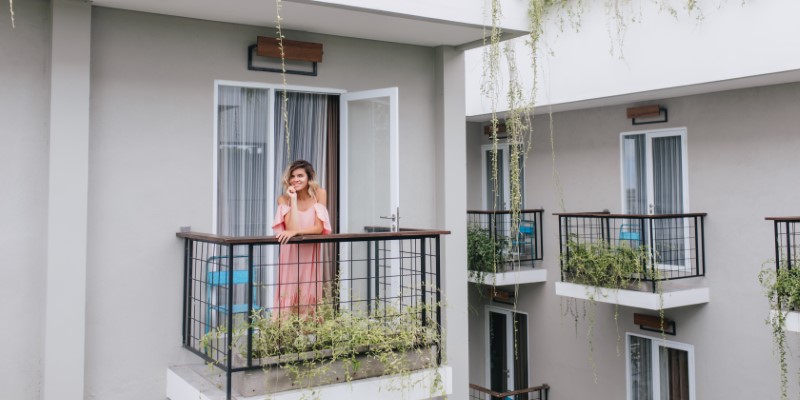Condo Vs. Single-Family Home: Which Is The Better Choice?
Author: Tooba
Choosing the right type of home is a personal decision with long-term implications. While condos offer convenience and amenities with less responsibility, single-family homes provide space, privacy, and freedom. Both options have unique advantages and trade-offs that align with different lifestyles, budgets, and goals. This guide explores the critical aspects of each to help you decide which option best suits your needs.
Differences Between Condos And Single-Family Homes
A condo is typically part of a larger complex where owners share access to amenities such as gyms, pools, or gardens. While condo owners only own the interior of their units, the exterior and common areas are maintained through shared HOA fees. On the other hand, single-family homes are standalone properties with full ownership of the building and its land, giving homeowners greater freedom and responsibility.
Location And Accessibility
Condos are often found in urban areas, providing easy access to restaurants, shops, and public transportation. This makes them ideal for individuals or couples who prioritize convenience. Single-family homes are generally located in suburban or rural areas, offering larger plots of land, more privacy, and quieter surroundings.
Ownership And Flexibility
Condo ownership comes with shared rules governed by the HOA, limiting certain modifications. Homeowners of single-family properties enjoy greater autonomy in customizing the interior and exterior. This difference can significantly influence the lifestyle each type of property offers.

Cost Comparison: Condo Vs. Single-Family Home
The financial implications of owning a condo or single-family home exceed the purchase price. Due to their size and shared infrastructure, condos often have a lower market price. However, monthly HOA fees, ranging from hundreds to thousands of dollars, cover maintenance, insurance, and shared amenities. These fees are ongoing and can increase over time.
Single-family homes have higher upfront costs, including higher down payments and property taxes. However, these homes offer more significant potential for long-term appreciation and investment value. Homeowners can also avoid HOA fees, though they need to manage maintenance costs independently. In the long run, single-family homes provide more freedom to improve the property, which can increase resale value.

Lifestyle And Space Considerations
Lifestyle preferences are vital in choosing between a condo and a single-family home. The kind of environment, space, and amenities you value will determine which option is better suited for your lifestyle.
Privacy And Community
Single-family homes offer more privacy since they are detached properties with private yards. This makes them ideal for those who value solitude or enjoy outdoor activities. In contrast, condos encourage community interaction, with shared spaces like pools or gyms that foster social opportunities. For individuals who appreciate a sense of community and are comfortable with close neighbors, condos can be appealing.
Space And Layout
Single-family homes provide larger living areas, often including multiple bedrooms, garages, and yards. These features make them more suitable for families, pet owners, or people needing additional storage or workspaces. On the other hand, condos typically offer compact living spaces, making them better suited for individuals, couples, or retirees who prefer a low-maintenance lifestyle without the burden of managing a large property.

Maintenance And Responsibility Differences
The amount of time and effort spent on maintenance varies significantly between condos and single-family homes.
Reduced Maintenance With Condos
Condos are a low-maintenance option, as the HOA handles exterior upkeep, landscaping, and repairs for shared areas. Owners pay for these services through HOA fees, eliminating the need to coordinate with contractors or manage routine maintenance tasks. This arrangement appeals to people with busy schedules or those who prefer to avoid the hassles of home repairs.
Increased Responsibility With Single-Family Homes
Single-family homeowners bear the full responsibility for maintaining their property. This includes regular tasks such as lawn care, gutter cleaning, snow removal, and major repairs like roof replacements or plumbing fixes. Although these responsibilities can be time-consuming and costly, some homeowners enjoy managing their repairs and customizing their space. The autonomy to decide about the property without restrictions from an HOA is a significant draw for many.

Which Option Suits Your Long-Term Goals?
Your long-term goals and priorities will influence whether a condo or a single-family home is better.
Investment Potential And Market Trends
Single-family homes often have higher resale value and offer more opportunities for appreciation, making them a better investment for those planning to stay in one place for an extended period. They also provide flexibility for improvements that can further increase their market value. In comparison, condos are generally easier to buy and sell in high-demand urban areas but may have slower value appreciation due to their shared nature.
Family Planning And Future Needs
If you plan to start a family or need more space for pets and hobbies, a single-family home may align better with your future goals. The additional space and privacy it offers are ideal for growing families. However, if you prefer a more spartan lifestyle or anticipate frequent relocations for work, a condo's ease of maintenance and flexibility may suit you better.
Retirement And Downsizing
Retirees or those looking to downsize often favour condos due to their reduced maintenance responsibilities and built-in amenities. Retirees may also appreciate the social opportunities available in condo communities. On the other hand, homeowners who enjoy gardening, DIY projects, or hosting large gatherings may find the space a single-family home provides more satisfying.

Conclusion
Deciding between a condo and a single-family home is a deeply personal choice, shaped by financial factors, lifestyle preferences, and long-term plans. Condos offer convenience, security, and amenities, making them ideal for individuals seeking low-maintenance living and social interaction.
In contrast, single-family homes provide space, privacy, and autonomy, appealing to families or those looking to invest in a property for the long term. Whether you prioritize community amenities and convenience or space and independence, selecting a home that aligns with your needs will ensure you enjoy your living environment for years.


